Bridging Discoveries: Key Findings from the Study on Public Perception of Agricultural Biotechnology in the Philippines
| |
The Philippines is known to be one of the pioneering countries in Southeast Asia for biotech adoption. In essence, the country is committed to science-based risk assessments, ensuring that the products of biotechnology are carefully examined for potential risks to the environment and human health. However, as the Philippines advocates for the responsible use and production of biotech applications, questions and debates ripple across the country–touching upon issues concerning food security, environmental sustainability, and public health safety.
In 2002, researchers from the International Service for the Acquisition of Agri-biotech Applications (ISAAA) Inc. and the University of Illinois at Urbana-Champaign conducted a study titled The Social and Cultural Dimensions of Agricultural Biotechnology in Southeast Asia: Public Understanding, Perceptions, and Attitudes towards Biotechnology in the Philippines. This study presents the general understanding and knowledge of various stakeholders in the Philippines. Trust in information sources is also explored in this study.
Four years later, a follow-up study in 2006 was conducted by ISAAA Inc., in collaboration with the Southeast Asian Regional Center for Graduate Study and Research in Agriculture (SEARCA) and the College of Development Communication at the University of the Philippines Los Baños (CDC UPLB), titled Public Understanding and Perception of and Attitude Towards Agricultural Biotechnology in the Philippines.
Sixteen years after public debates on genetically modified (GM) crops, ISAAA Inc., in partnership with the Philippine Agriculture and Fisheries Biotechnology Program of the Department of Agriculture (DA Biotech Program), SEARCA, and CDC UPLB, launched the 2022 study titled Public Perception of Agricultural Biotechnology in the Philippines at Acacia Hotel Manila on September 22, 2023. This is a revisit to the previously conducted research on public perception of agri-biotech in the country.
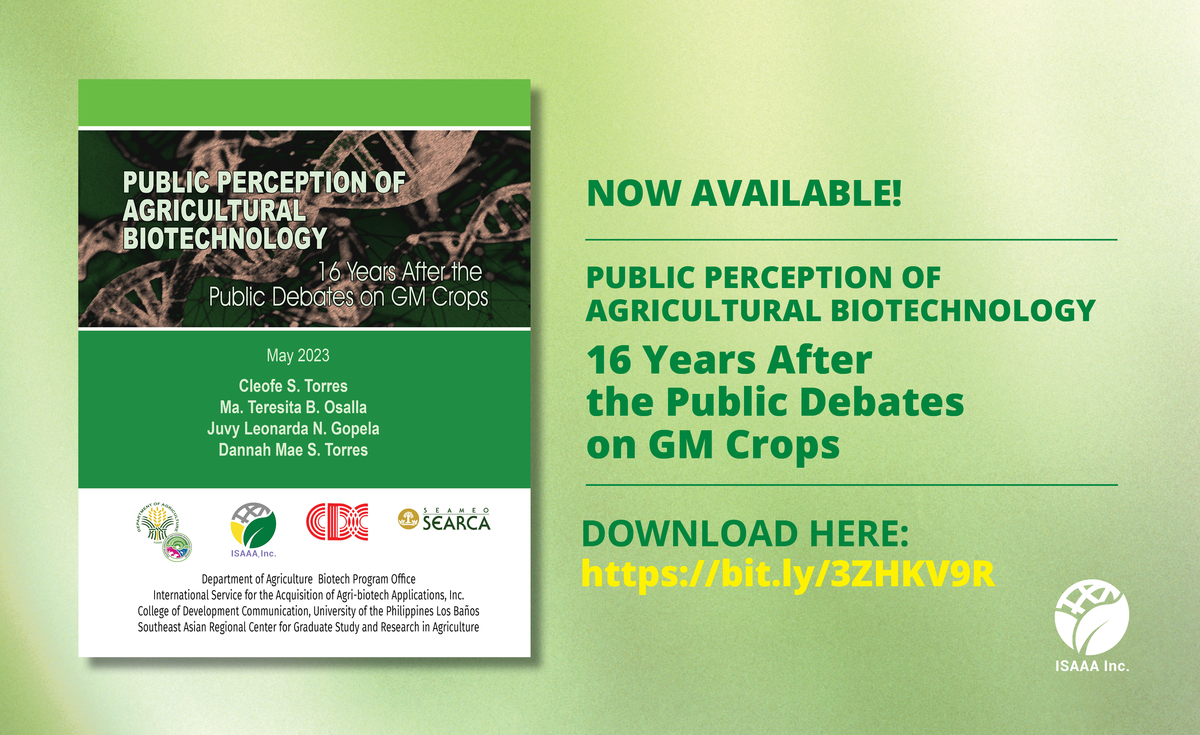
Understanding public perception is not merely an academic pursuit. Public perception is vital as it shapes public opinions, market acceptance, and policy development. However, it is also important to acknowledge that public perception of agricultural biotechnology is a multifaceted issue. Hence, this article sheds light on the substantial findings of the study and its implications in the future of the ever-evolving landscape of agricultural biotechnology in the Philippines.
A Dive into the Public Perception of Agricultural Biotechnology
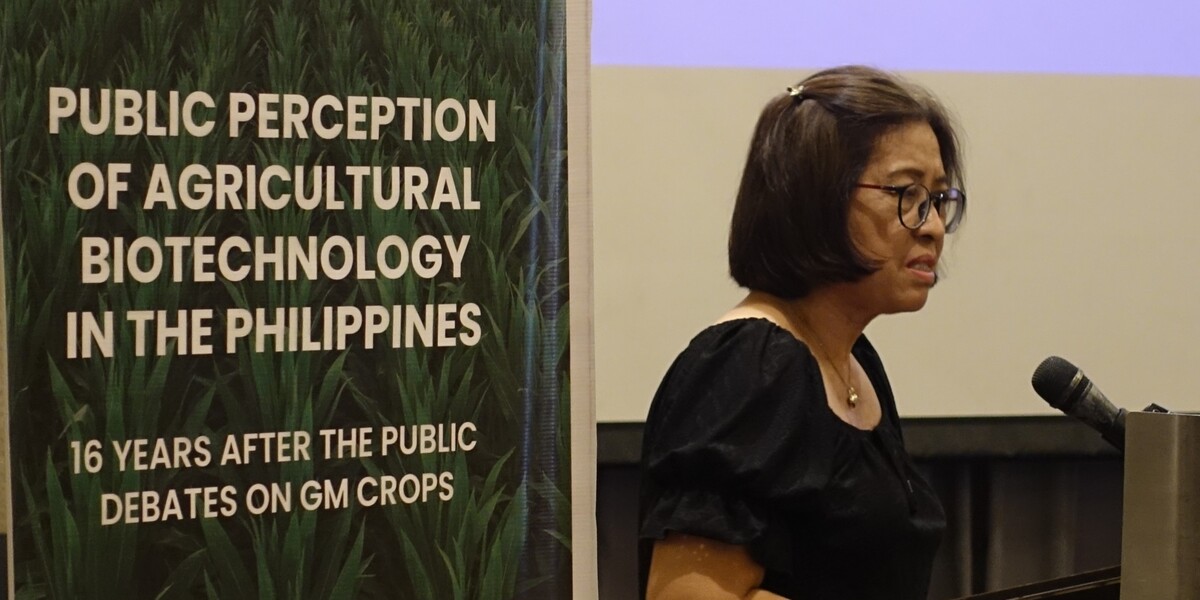
The study adopted the seven provinces from the 2006 perception study, namely Cagayan, Metro Manila, Laguna, Iloilo, Cebu, Bukidnon, and Davao. For the 2022 study, the provinces of Mindoro Oriental, Negros Occidental, and North Cotabato are added to represent provinces with Genetically Modified Organisms (GMO) ban. A total of 1,180 respondents participated in the study representing nine stakeholder groups, namely businessmen and traders, consumers, extension workers, farmer leaders and community leaders, journalists, policymakers, religious leaders, scientists, and the newly added group of stakeholders, students across the country.
Various topics were tackled during the discussion of the results. One of the key findings is the prominent use of social media, specifically Facebook and YouTube, as the main source of information for most of the respondents. Social media is followed by mass media (e.g., television and electronic newspapers) and interpersonal sources (e.g., fellow farmers and scientists). Interestingly, the results show that despite being the most accessed medium of information, social media is not entirely trusted in providing information about biotechnology. As expected, scientists are the most trusted source of information, but unfortunately, they are the least accessed. Although the survey intends not to probe, the researchers believe that these results stem from the Filipinos’ way of living during the pandemic, where scientists are in their laboratories and offices and the general public is mostly glued to their gadgets.
Scientists, extension workers, journalists, and students ranked high in terms of knowledge scores. However, farmer and community leaders, religious groups, policymakers, consumers, and business traders fall behind the list of stakeholder groups with the most number of correct answers. Have the knowledge scores improved from the results of the 2006 study? Unfortunately, no. In terms of knowledge about genes and viruses, the respondents are still unsure of the correct definition of genes, and they are unaware of how viruses spread in humans and in plants. This clearly shows an information gap, considering that the knowledge scores in the 2022 study are even lower by 6% compared to the 2006 study.
The results of the study also show favorable attitudes towards agricultural biotechnology. In general, Filipino stakeholders are more concerned about health in using biotechnology for food production. However, the respondents showed ethical concerns about the use of biotechnology in animals. The grounds for having reservations also lie in the presence of unknown risks to health and safety.
Initially, the survey form is intended to be distributed and answered in Google Forms because of the COVID-19 restrictions. However, the researchers encountered difficulties reaching the respondents through email. The respondents were hesitant to give their email addresses, and email communication requires constant monitoring and follow-up. A low turnout of responses was also observed in gathering data through online platforms. Therefore, the researchers resorted to face-to-face surveys for some stakeholder groups.
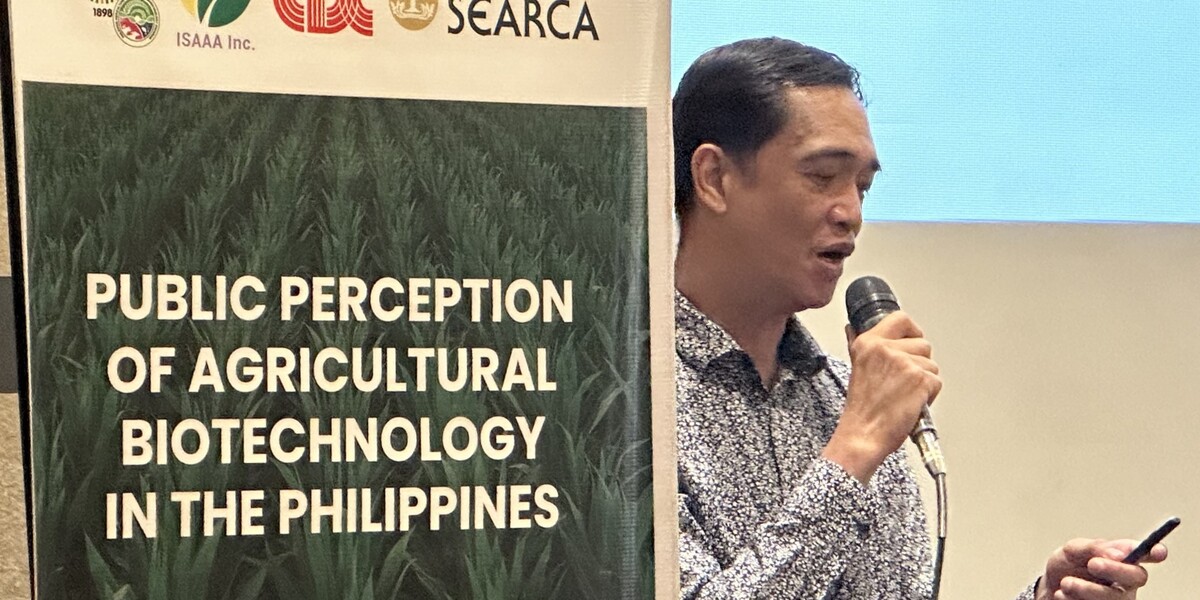
According to the researchers, they encountered difficulties explaining technical concepts in the Filipino language. There are certain terminologies that do not have direct Filipino translation. Hence, the researchers already prepared answers to the frequently asked questions for reference to future respondents. Lastly, certain groups of respondents also need assistance when it comes to answering the questionnaire. There are respondents who have hearing, sight, and/or speech disabilities, and there are some who are illiterate–cannot read and write.
So, where do we go from here?
One of the obvious actions to take is to tap scientists to serve as speakers and storytellers of biotechnology. With the emergence of various social media platforms, it is recommended to capitalize on social media as it will surely reach thousands of Filipinos. During the open forum, Ms. Lyn Resurreccion of Business Mirror said that TikTok could also be a great platform for communicating science. In this way, we are not just providing information to our audiences, but at the same time, we are also able to touch the entertainment aspect of social media.
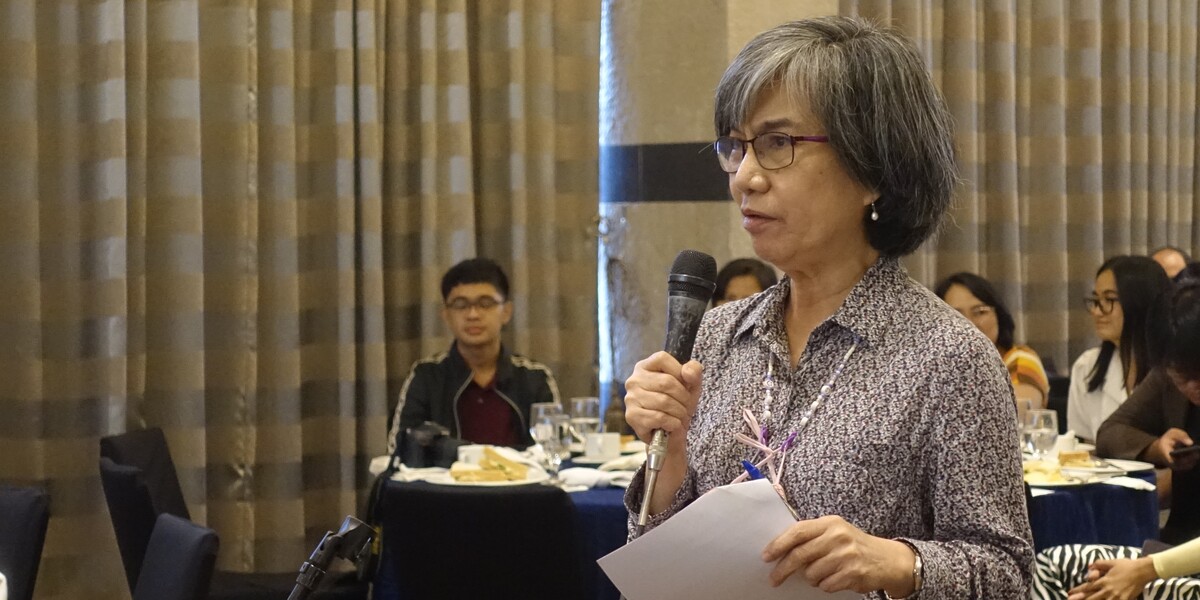
Prof. Mark Lester Chico from CDC agreed and said that scientists should also learn how to use TikTok. Nowadays, doctors utilize social media as a platform to explain their own science. “If we want to make biotechnology appreciated, at the very least, sila [dapat] mismo ang humarap sa tao (they [should] be the ones facing the public),” Prof. Chico said. This is a challenge to our scientists and researchers at present. Scientists should veer away from the very scientific and serious tone of explaining science. As communicators of science, it is important that our message comes across effectively through various audiences.
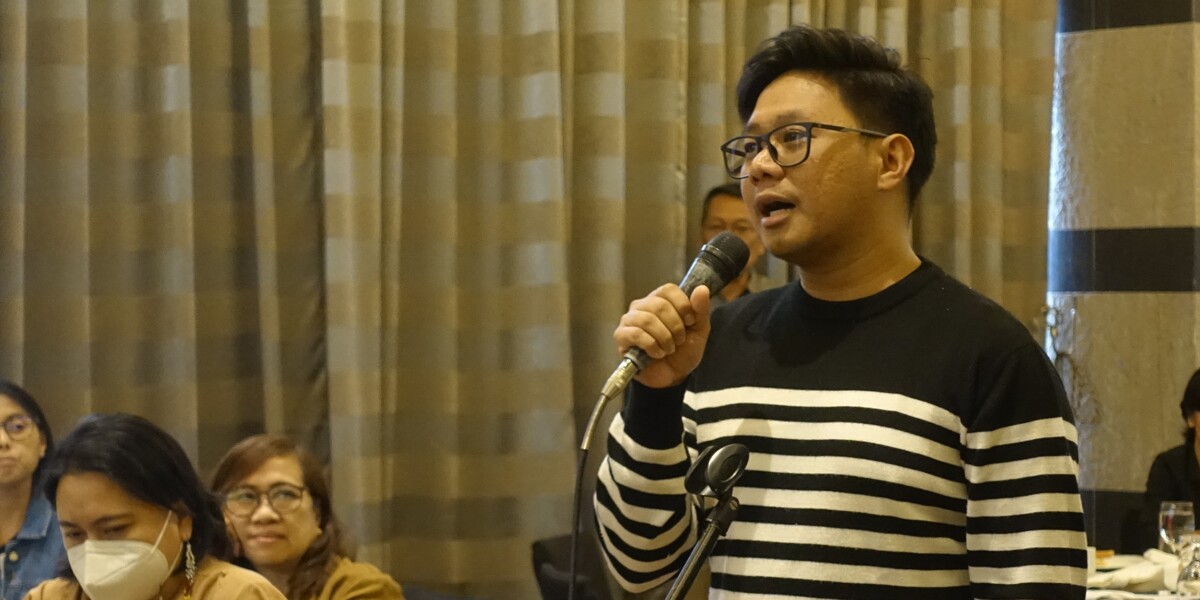
Dr. Ernelea Cao of UP Diliman also raised a unique perspective in presenting science on social media. She said that a lot of scientists and researchers may not be as comfortable as influencers when talking in front of a camera. Hence, Dr. Cao asked the researchers if engaging influencers or celebrity endorsers would also be a great option for communicating science. According to Dr. Cleofe S. Torres, the principal investigator of the study, the credibility and background of the person communicating the science should still be the top priority in engaging the public. Now that we are in an era where trust in information sources is put into question, establishing and maintaining the credibility of the speakers speaks louder than just the topic itself.
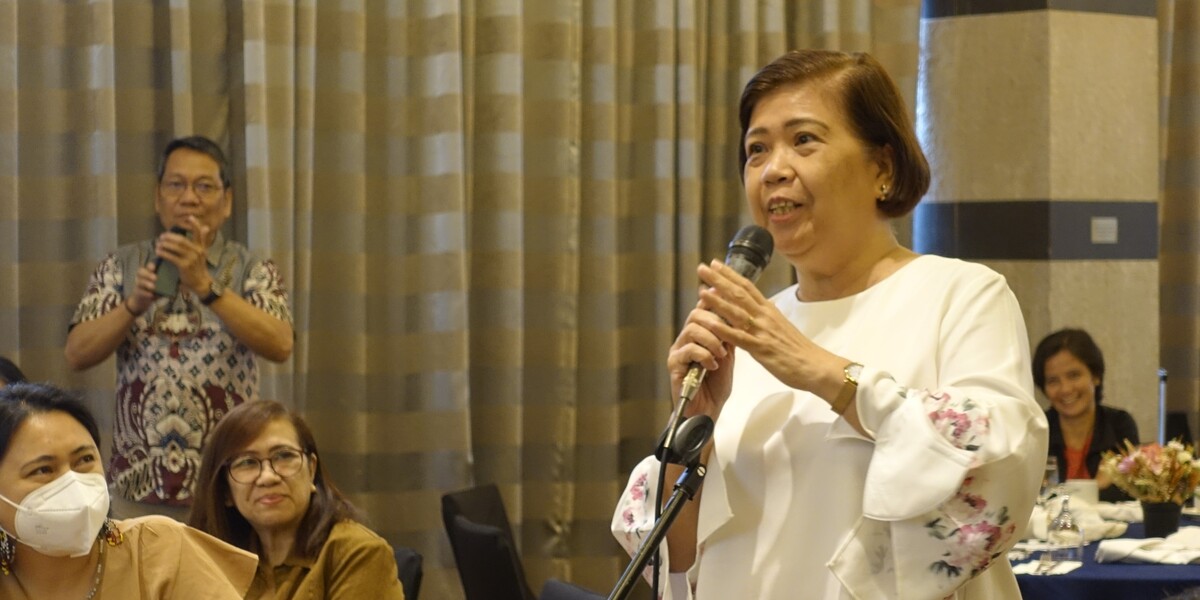
Dr. Torres reminded the public that fake information is rampant in social media. There are contents that are extremely sensationalized, which sometimes makes the information inaccurate and somehow twisted. Hence, this calls for a more strategic way of presenting science to the public. She suggested popularizing misconceived terms, such as genes and viruses, to improve the understanding and knowledge of the stakeholders. Mr. Marvyn Benaning of Manila Bulletin urges science communicators to use Filipino as the medium of language in communicating biotechnology. He mentioned that if our goal is to reach the Filipino people, we should communicate biotechnology based on their level of knowledge and understanding.
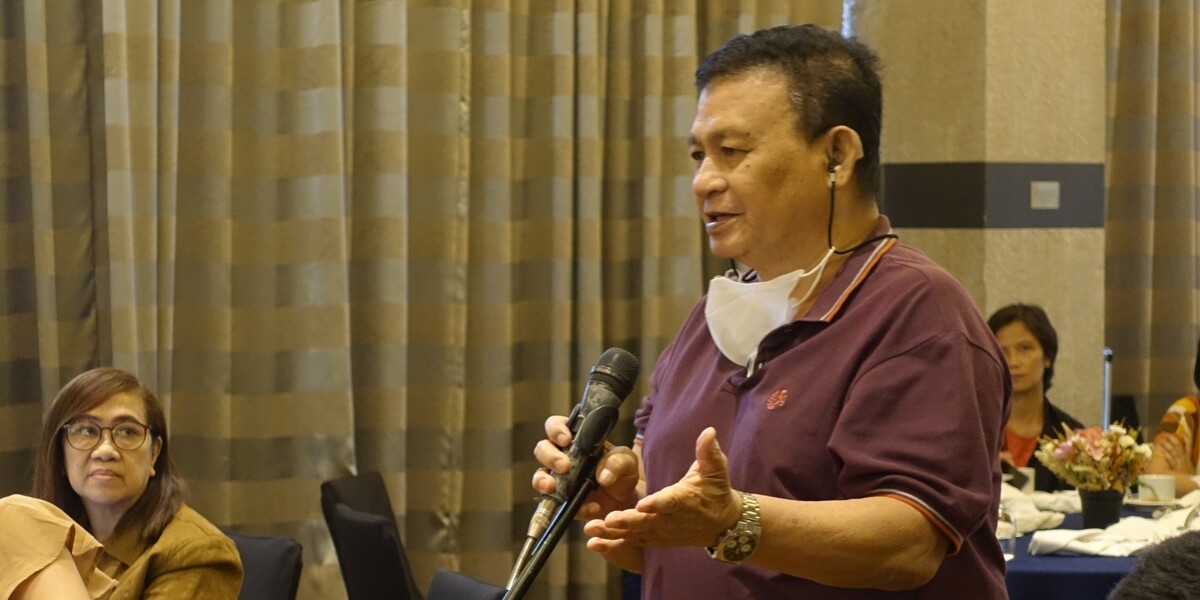
This statement is supported by the Executive Director of ISAAA Inc. and the Project Leader of the study, Dr. Rhodora Romero-Aldemita. Dr. Aldemita said that the language is very important to ensure that biotechnology is easily understood by the public sector. If the products of biotechnology are appreciated, acceptance and adoption will eventually come. ISAAA Inc. hopes that with the training and seminars conducted by the organization, scientists and researchers will be trained to communicate biotechnology to help the Filipino community utilize the products of biotechnology. ISAAA Inc. once again utilizes the radio to popularize biotech in Pilipino.
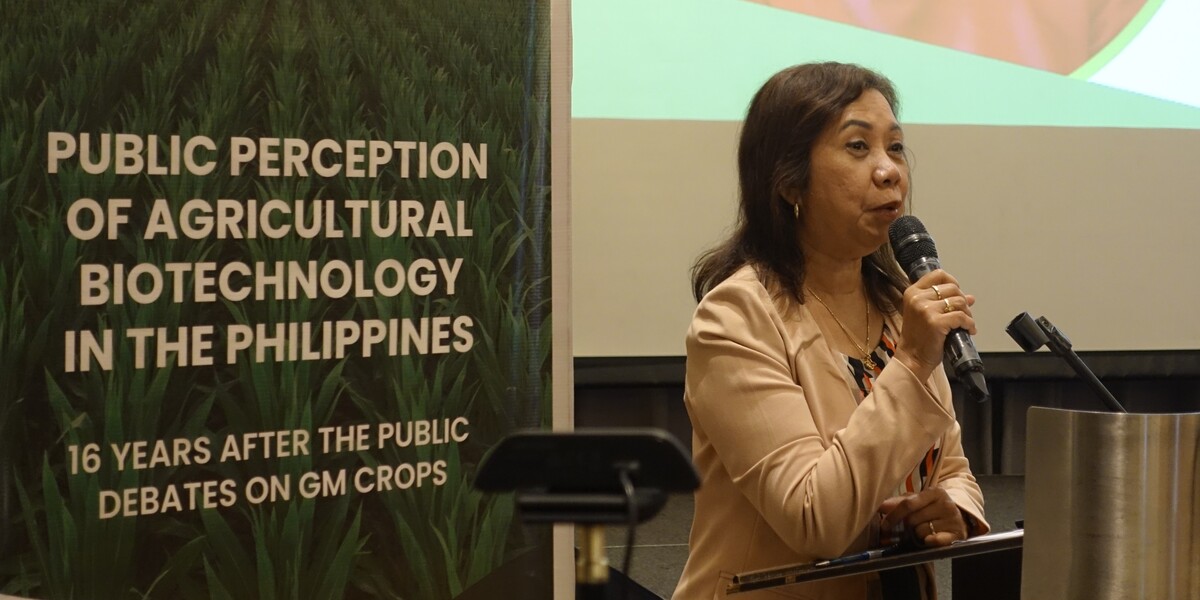
Public perception, as we have learned, is a dynamic and multifaceted issue. It is influenced by various factors such as knowledge, awareness, and personal values. The findings of the study emphasize the significance of concerted efforts from various stakeholders in achieving the broader goals of agricultural biotechnology in the Philippines. The insights garnered from the study looked into the vital role of science-based communication efforts and initiatives in raising public awareness and understanding in the past 17 years.
As the Philippines remains at the forefront of biotech adoption, this study recognizes a world where science and society must walk hand in hand. This is a crucial step towards the continuous progress of agricultural biotechnology in the Philippines.
For more information, watch the recorded Facebook live here and download the presentations from the ISAAA website.
| Newer Post | Archive | Older Post |
Science Speaks is ISAAA Inc.'s official blog. Weekly blog articles, authored by ISAAA writers, partners, and invited contributors, aim to help share, disseminate, and promote scientific knowledge and its vital role in achieving global agricultural sustainability and development. Your support to Science Speaks will help us achieve this goal. You can help us by donating as little as $10.

